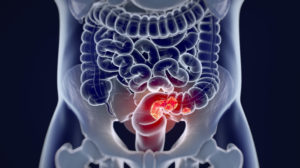A new study shows that changes in epigenetic patterns may explain how obesity increases the risk of disease. Read on to learn more.
RELATED: Obesogenic Diet Drives Epigenetic Predisposition To Metabolic Disorders
In this Article:
- Obesity and Disease
- Obesity and Epigenetics
- Low Calorie Diet Experiment
- Changes in Epigenetic Patterns
New Study Explores the Impact of a Low Calorie Diet on Epigenetic Patterns
Obesity and Disease
The defining feature of obesity is an accumulation of an excessive amount of body fat. Apart from that, most obese individuals have a body mass index (BMI) of 30 or higher.
Obesity is a complex disease that may be caused by a variety of factors. These factors include:
Obesity in and of itself is problematic, but it’s also a disease that increases the risk for other diseases. These diseases include:
- Hypertension
- Type-2 diabetes
- Cardiovascular disease
- Cancer
But why does obesity increase the risk for these diseases? The field of epigenetics may be able to shed some light on this.
Obesity and Epigenetics
Epigenetics is a field that focuses on the effects of changes in DNA expression rather than changes in the DNA sequence. Some researchers are looking into the epigenetic mechanisms that could explain the link between obesity and other diseases.
Certain epigenetic mechanisms can mediate the link between obesity and disease. One of these mechanisms is DNA methylation.
What is DNA methylation? This refers to a process where a methyl group is added to DNA. This process can regulate gene expression and usually leads to gene silencing.
One research team explored the role of DNA methylation in obesity and disease. They recently published the results of their study in the May 2020 edition of the European Journal of Clinical Nutrition.
RELATED: Kefir Peptides Ease High-Fat Diet-Induced Atherosclerosis
Low Calorie Diet Experiment

Before starting their experiment, the research team established baseline data. First, they measured their participant’s DNA methylation patterns.
Their participants include 11 morbidly obese women with an average BMI of 58.5. Then they compared their DNA methylation patterns to a group of normal-weight women with comparable ages.
The baseline data reveals that there was a difference in the methylation patterns between their participants and normal-weight women. The participants had 11% less methylation marks compared to women with normal BMIs.
Jumping off of the baseline data, the researchers wanted to determine if weight loss impacts DNA methylation. They hypothesized that weight loss might be able to increase the participants’ methylation mark levels.
To induce weight loss, the researchers put their obese participants on a short-term hypocaloric diet. For six weeks, the participants took in a maximum of 1,200 calories each day. At the end of the experiment, they measured the participants’ weight and DNA methylation marks.
Changes in Epigenetic Patterns
After six weeks, the participants did experience weight loss. On top of that, the researchers extracted blood to measure their DNA methylation levels.
Their principal findings include:
- There were DNA methylation changes in more than 16,000 genome sites.
- These sites are associated with over 9,200 genes. A good number of these genes are linked to various epigenetic pathways to cancers.
- There are still a good number of genomic sites linked to approximately 650 genes that did not change.
These findings further establish the benefits of caloric restriction. Unfortunately, the short-term diet couldn’t reverse all of the methylation patterns.
There was still a difference between the participants and the normal-weight women, but the researchers believe that extending the diet may lead to more favorable results. Perhaps a long-term diet may be able to reverse the epigenetic effects of obesity.
The research teams need to run more studies to establish this, but the results are consistent with other caloric restriction research findings. In animal studies, caloric restriction helps extend lifespan.
These findings are also consistent with Blue Zone research. Blue zone areas are places where people experience an unusually long healthspan and lifespan.
Ikaria in Greece, Okinawa in Japan, and Sardinia in Italy are examples of Blue Zone areas. In many of these areas, low-calorie diets are the norm.
There’s a lot to unpack when it comes to the impact of diet on epigenetic mechanisms, but the small study results are promising. It helps establish the link between weight loss, epigenetic changes, and the healthspan.
On top of that, it also shows that specific lifestyle changes may have a positive impact on your DNA. Remember, though, it’s always important to consult your doctor before making any drastic dietary changes.
Epigenetics is shedding light on a variety of health conditions. The field is on its way to developing exciting health applications. If you’re interested in learning more about some of these applications, visit TruDiagnostic and connect with their team of experts.
What are your thoughts on the results of the low calorie diet experiment? Please share your thoughts with us in the comments section below.
Up Next:





